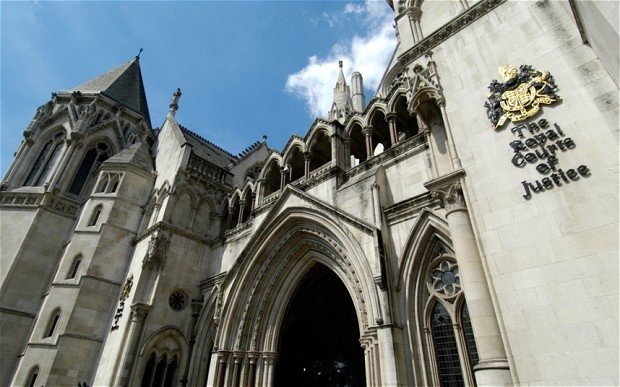Google faces the prospect of paying out compensation to iPhone owners in the United Kingdom if an attempted class action lawsuit goes against the firm, with a group taking the search giant to court over its bypassing of privacy controls in Safari that took place from 2011 until 2012.
The group "Google You Owe Us" launched the representative action, the UK's equivalent of a class action lawsuit, against Google on Thursday, after formally notifying Google of the claim in July, BBC News reports. The claim by the group is being made "on behalf of all qualifying iPhone users" based in England and Wales who were affected by the "Safari Workaround."
The workaround refers to allegations dating back to 2012 that Google had intentionally bypassed Safari's default privacy settings, used to restrict websites from setting cookies unless the user interacted with those sites directly. Google altered its advertising code to submit an invisible form to allow cookies on behalf of the user, doing so without the user's content.
The Google You Owe Us group is led by Richard Lloyd, a former Executive Director of consumer watchdog publication Which? and was previously a Special Advisor to the Prime Minister. Lloyd is also a class member of the action, and is representing all potential claimants, with support from law firm Mishcon de Reya.
According to the action, the claimant class consists of individuals who were present in England and Wales at any time between June 1, 2011 and February 15, 2012, were resident in the two countries on May 31 of this year, have an Apple ID, owned an iPhone, used Safari as a browser with default security settings, and did not opt out of tracking and collation via Google's "Ads preference Manager."
If the case is successful, potential claimants would then be asked to register with the group, in order to receive compensation. The group believes approximately 5.4 million individuals were affected during the defined period, and may be eligible for compensation, though as the court will determine the amount if the case goes against Google, it is unknown how much each claimant could receive.
"Through this action, we will send a strong message to Google and other tech giants in Silicon Valley that we're not afraid to fight back if our laws are broken," said Lloyd. "In all my years speaking up for consumers, I've rarely seen such a massive abuse of trust where so many people have no way to seek redress on their own. That's why I've taken on one of the biggest fights of my life in representing this legal action."
Representative actions in the UK are relatively rare, with the group claiming this to be the first of its kind against a major tech company concerning the "alleged mass misuse of personal data." Unlike US-style class actions, the UK's representative actions do not permit "punitive" damages that can inflate the levels of compensation, and are not conducted with a jury.
In the United States, Google was ordered by the U.S. Federal Trade Commission to pay a civil penalty of $22.5 million for its security settings bypass in 2012. A year later, Google agreed to pay a $17 million settlement to 37 states and the District of Columbia over the matter.
Google did denying Google's request to block such lawsuits.
 Malcolm Owen
Malcolm Owen







-m.jpg)






 Chip Loder
Chip Loder
 Wesley Hilliard
Wesley Hilliard
 Marko Zivkovic
Marko Zivkovic

 Christine McKee
Christine McKee
 Amber Neely
Amber Neely










12 Comments
Good to hear. :-)
So Google was sued here in the U.S., where's my money?????? That's right,.. like other B.S. class action lawsuits, the only real winner are the lawyers. Still that happened in 2012 when Google was doing it's own thing. It's 5 years later and they're just now getting around to it? It's been a non-issue for the last 5 years also. This class action should be thrown out at this point.